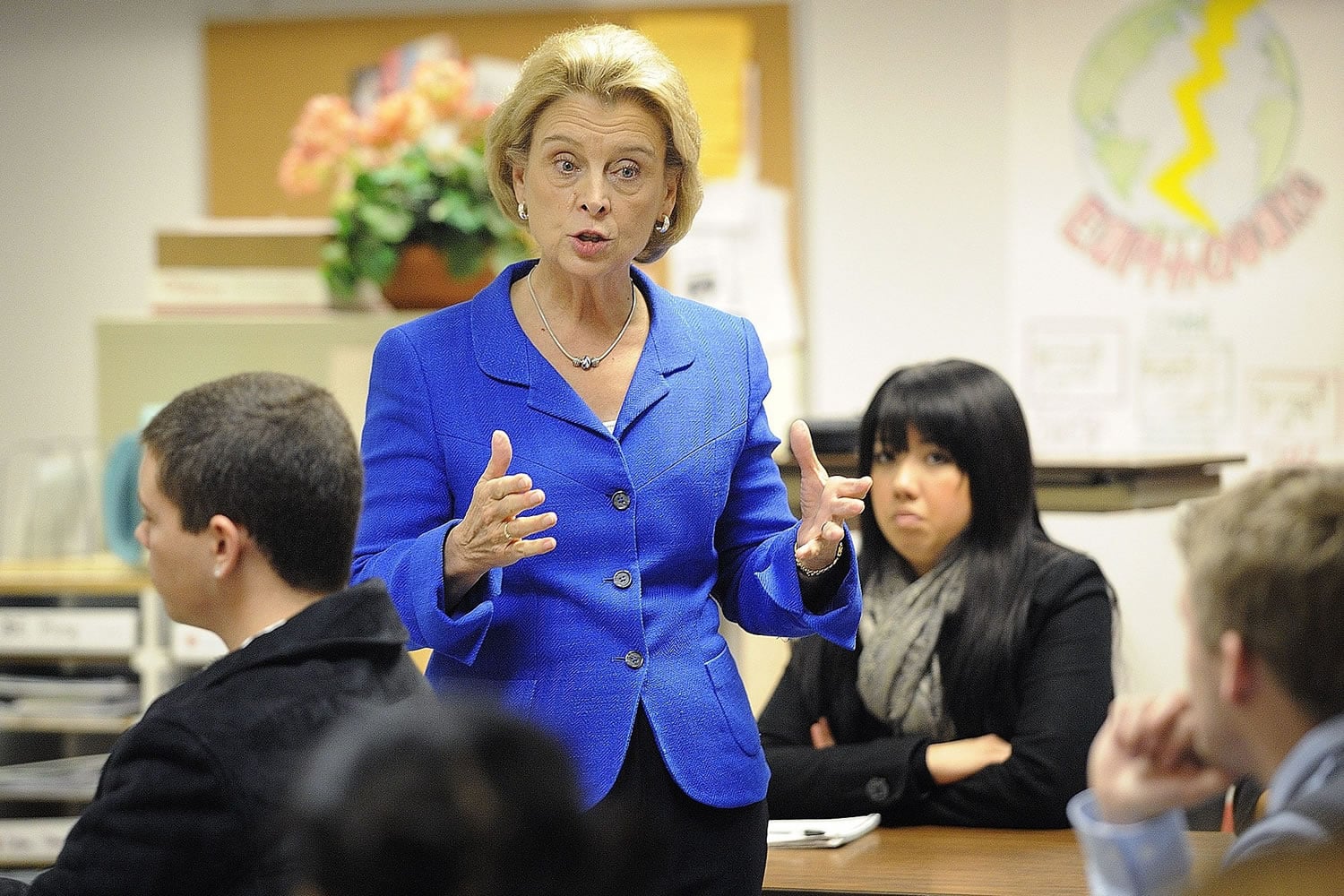Thirty-two students at the Clark County Skills Center got an impromptu civics lecture Monday morning from Gov. Chris Gregoire on the hard state budget choices she faces due to Washington’s ongoing recession.
The students may not have absorbed all the numbers, or her explanation of how the state and the nation got into this mess, but it was hard not to get her bottom line:
“The last thing I wanted to cut is education, but it’s half the budget.”
Haley Taylor, a student from La Center High who’s studying at the Skills Center to become a dental assistant, asked the governor why she is proposing to cut $150 million from the state’s $300 million levy equalization budget. The state aid helps property-poor school districts match programs offered by districts with richer tax bases.



